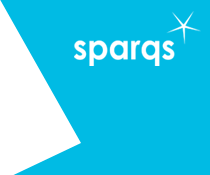Student Learning Experience model - sparqs

The Student Learning Experience (SLE) is a tool that lies at the heart of many of sparqs’ resources. Launched in October 2023, this redeveloped SLE model was commissioned by the Scottish Funding Council as part of its Review of Coherent Provision and Sustainability. sparqs worked with students and staff to redevelop the model to provide a sector reference point where students’ interests are front and centre.
The new SLE model is designed to sit at the heart of conversations with students, enabling students and staff to work together to identify priorities to enhance the quality of learning. It plays a key role in Scotland’s quality arrangements and will continue to evolve alongside the tertiary approach to quality.
See our webpage for further details on the development of the new model.
The new SLE model is comprised of 9 building blocks. These are the key elements that make up the learning experience. They support students to begin to consider the distinct aspects of their experience which come together to provide a high-quality student learning experience.
The model is underpinned by 3 lenses. These are areas of focus that can be applied across all 9 of the building blocks. The resource will be updated during the 2023-24 academic year, to allow institutions and students to apply the lenses to the model in order to highlight aspects across the learning experience that relate to these 3 areas.
Each building block has an accompanying set of 10 reflective questions. The questions support dialogue between students and staff on various aspects of the building blocks. They will help develop an understanding between students and staff of strengths within the student experience, as well as areas for development.
The SLE has been used in our Course Rep Training for many years, to help course reps break down the often vague idea of the learning experience into practical, bitesize chunks. It means that reps can ask their fellow students specific, meaningful questions around each of the areas of the learning experience, allowing student input to be mapped across various headings to ensure it is broad-ranging.
It is possible to use the headings of the Student Learning Experience for other similar engagement purposes, such as agenda items for a course committee meeting, topics for focus groups and surveys, or a mapping tool for teaching staff to reflect on how much input they are getting from student representatives across the different areas of learning.
For further information, please contact:
- Name: Megan Brown
- Role: Development Consultant
- Email: megan.brown@sparqs.ac.uk
- Phone: 07469 354245
(October 2023)
Item Number:293
- The Future of Learning & Teaching: defining and delivering an effective and inclusive digital/blended offering - SFC et al
- A guide to inducting students association education officers - sparqs
- Developing the future careers of SA education officers: outduction toolkit - sparqs et al
- Creating and reviewing student engagement roles - sparqs
- Supporting Sabbatical Officers as they leave office - University of St Andrews Students
- Student Learning Experience model - sparqs
- Suggested questions for Course Reps to use 2023-24 - sparqs
- An induction guide for Academic Representation Co-ordinators - sparqs
- Enhancing the Student Led Teaching Awards (SLTA) Process - University of St Andrews Students Association
- Systematic Literature Review of "Hard to Reach" Students and methods of Inclusive Engagement - University of Cambridge
- Student Learning Experience (original tool) - sparqs
- Online Student Learning Experience Model - Perth College UHI
- Students as active partners in shaping their learning experience - Leeds Trinity University College
- Theory of partnership: Ladder of Citizen Participation - Sherry R Arnstein
- Understanding the SU's key relationships: The Cadogan Matrice
- Framework for the Development of Strong and Effective College Students
- A Student Engagement Framework for Scotland - sparqs and sector partners
- Supporting Senior Student Officers in Universities - sparqs
- Hearing the Student Voice Involving Students in Curriculum Design and Development - Various
- Engaging Students in Online Distance Learning - sparqs

